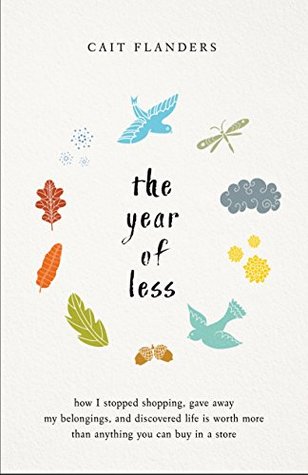More on this book
Community
Kindle Notes & Highlights
Read between
December 27, 2024 - January 2, 2025
The rules for the shopping ban seemed simple enough: For the next year, I wouldn’t be allowed to buy new clothes, shoes, accessories, books, magazines, electronics, or anything for around the house. I could buy consumables—things like groceries, toiletries, and gas for my car. I could purchase anything I outlined on my “approved shopping list,” which was a handful of items I could look into the immediate future and know I would need soon. I could also replace something that broke or wore out if I absolutely had to, but only if I got rid of the original item.
I wanted to start using what was already in my possession. I wanted to feel like everything had a purpose, and that whatever I brought through my front door in the future would also have a purpose. If I couldn’t do that, it had to go.
I wanted to stop wasting money on things I thought I needed, only to come home and find I already had more than enough. And I really wanted to stop talking myself into buying things I would never end up using. I wanted to get to a place where I only bought things I needed when I needed them. I wanted to finally see where my money was going and budget in a way that aligned with my goals and my values. And I really wanted to start spending less and saving more. But it would never happen if I continued to make mindless spending decisions.
Because that’s what happens when things hurt. You try to fix the hurt, and solve every other problem in your life too—even the things that aren’t really problems at all.
The ban uncovered the truth, which was that when you decide to want less, you can buy less and, ultimately, need less money.
It was enough. I had enough. I was enough.
Remember that all you’re committing to is slowing down and asking yourself what you really want, rather than acting on impulse. That’s it. That’s what being a “mindful” consumer is all about.
Don’t just organize your stuff—analyze it, ask yourself what you want to keep, and let go of all the rest. I’m sure that sounds counterintuitive to some degree. You’re not going to be allowed to shop for three months, six months, or a year, and you’re also going to get rid of the things you currently have? But decluttering first can open your eyes to how much stuff you’ve wasted money on in the past, which can serve as motivation to not waste more money during your shopping ban. It will also give you a visual reminder of how much stuff you’re keeping.
transfer over any money you stop yourself from spending by not giving in to an impulse purchase. Finally, you could also deposit any money you make by selling things you decluttered.
Explain what your goals are, how you think it can help you and your family, and even set some goals for what you’ll do with all the money you save.
The more we share, the less that goes into the landfill.


